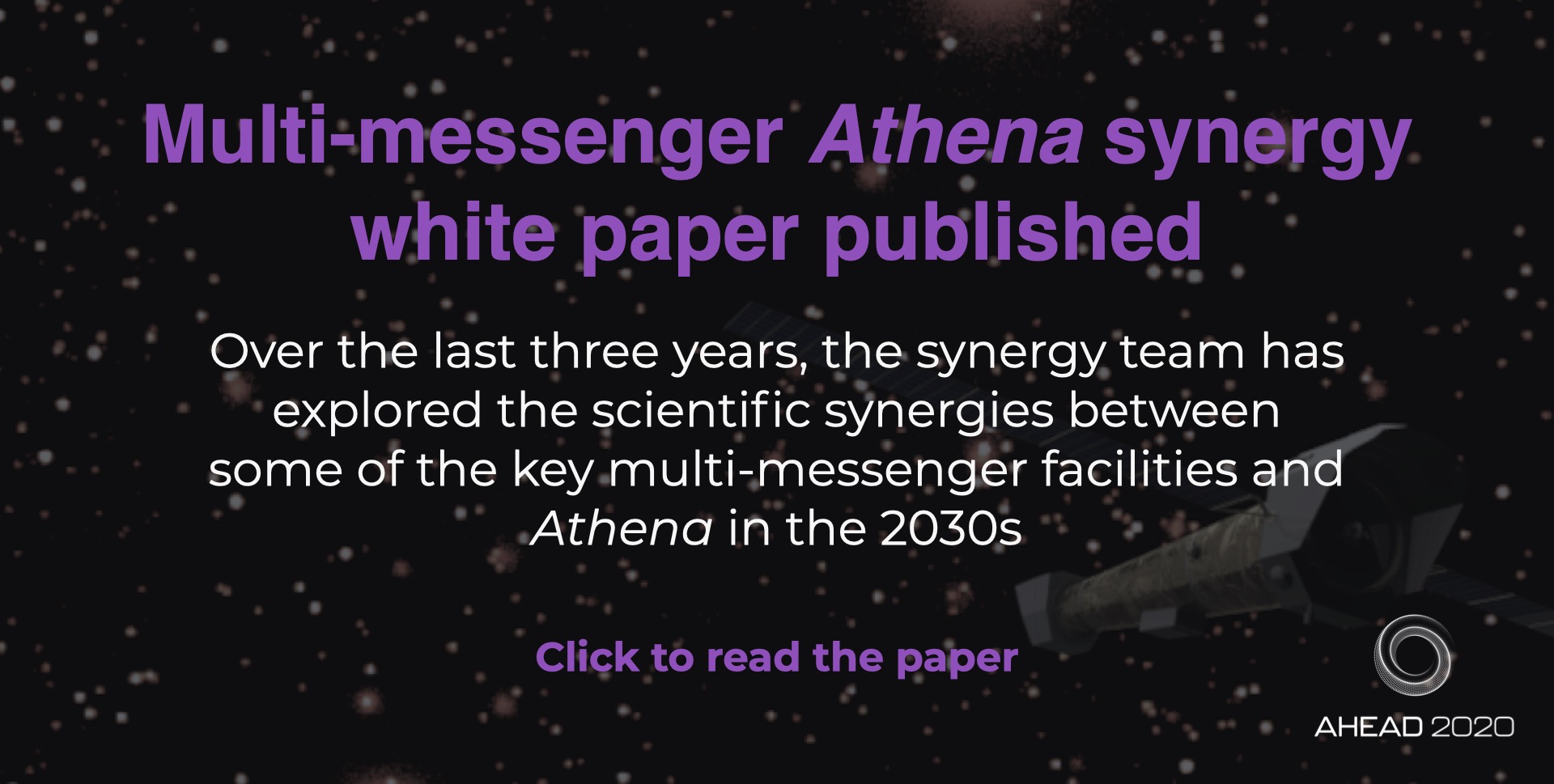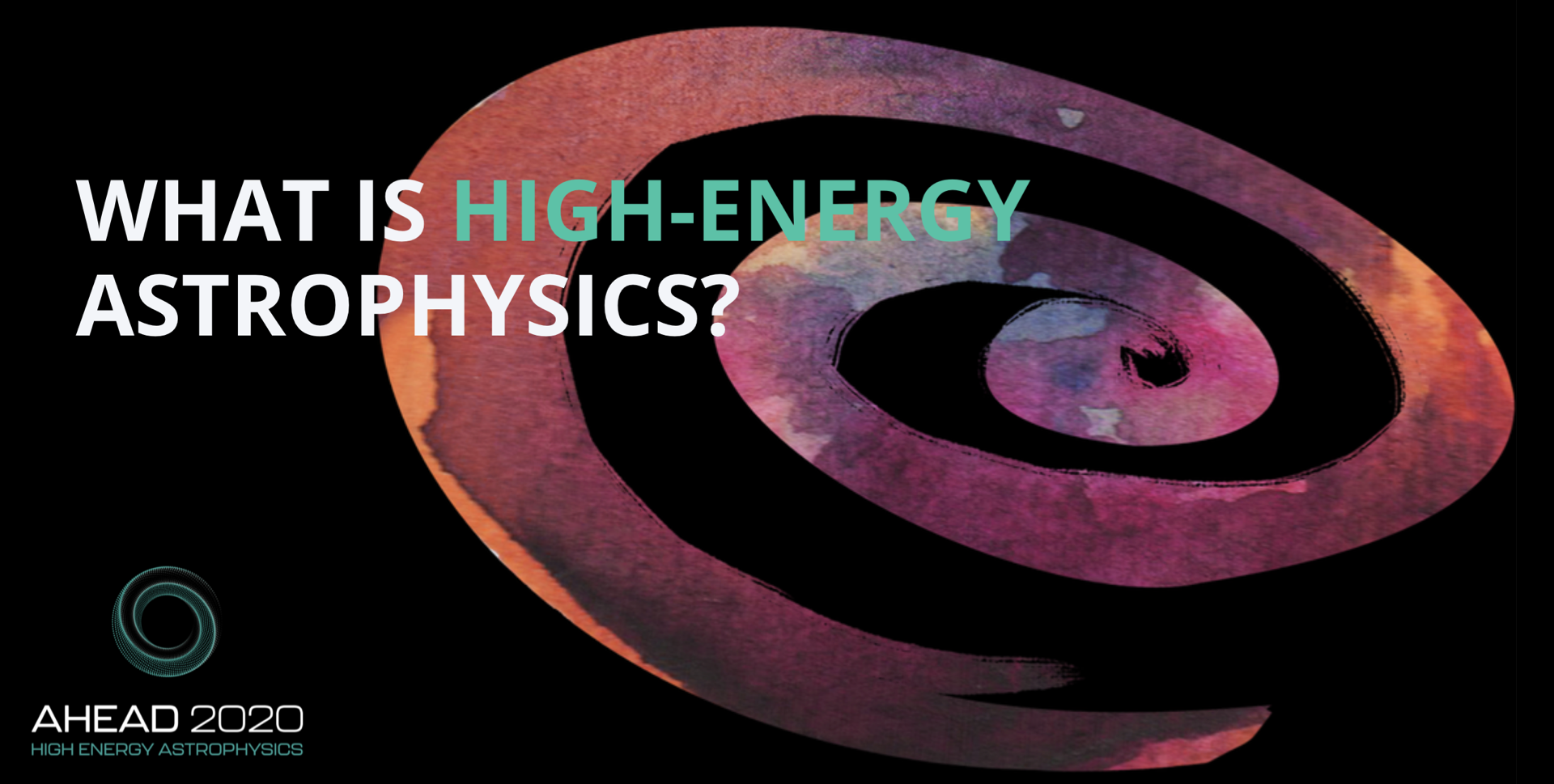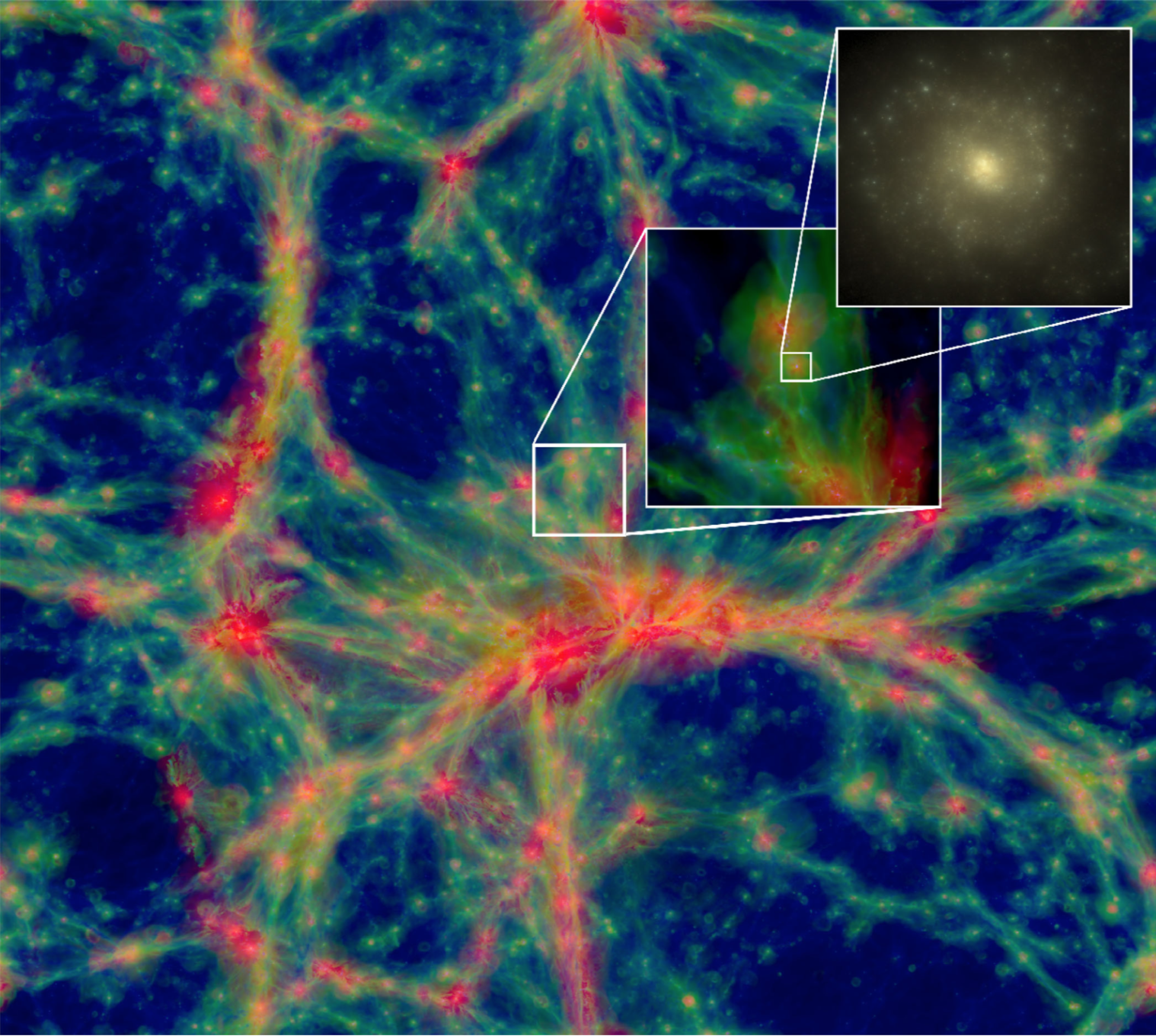What’s AHEAD?
AHEAD2020 builds on our previous program, funded in H2020 as starting community, that allowed us to qualify now as advanced community. Our overall objective is to advance further the integration of national efforts in high-energy astrophysics, keeping the community at the cutting edge of science and technology and ensuring that observatories are at the state of the art.
AHEAD2020 is now widening its horizons, to further integrate activities with the recently born multimessenger astronomy, boosted very recently by the discovery of gravitational waves and cosmic neutrinos and of their first high energy counterparts. This is achieved by a new large community of high energy astronomers, gravitational wave and astroparticle scientists. Along the road paved until recently, we keep strengthening the theorethical efforts, also building up on the results of the observations of multimessenger sources; and continue opening the best infrastructures for data analysis of high-energy space and ground observatories.
Technological developments will focus on the improvement of selected detector, optics devices and advanced analysis tools for the benefit of future space missions and ground-based multimessenger facilities, with more emphasis on the observation of the new transient Universe.
Furthermore we integrate key infrastructures for on-ground test and calibration of space-based instrumentation and promote their coordinated use. AHEAD2020 will support the community via grants for collaborative studies, dissemination of results, and promotion of workshops and a strong public outreach package will ensure that the domain is well publicised at both national and international level. It will also contribute to the benefit of society and to the growth of the European technology market, with specific studies of devices for cultural heritage, material composition and environmental monitoring, as well as the creation of a new generation of researchers.
Resources for the Community
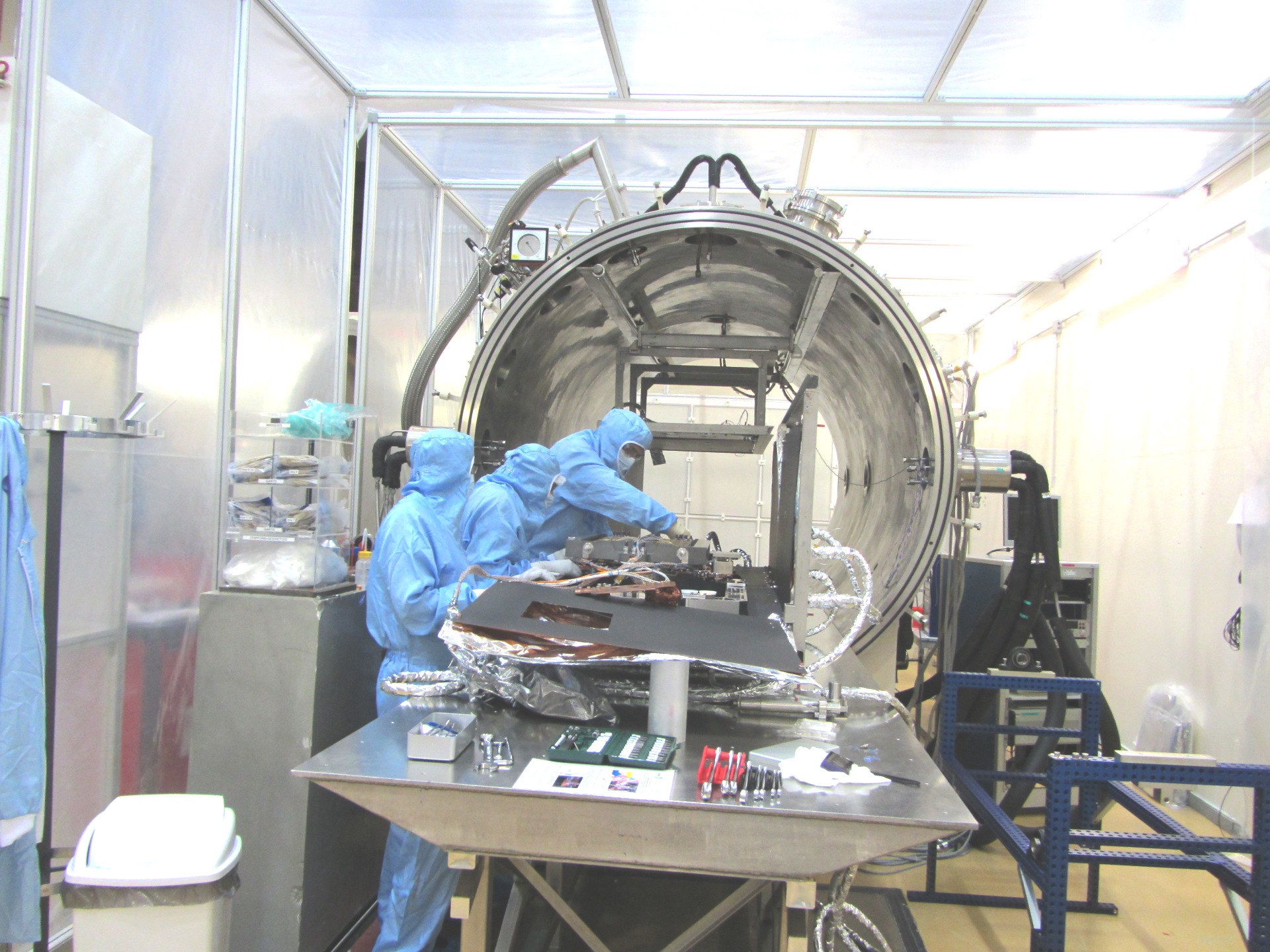
Free-of-cost access to some of the best European ground test and calibration facilities relevant for high-energy astrophysics
Free-of-cost access to X-ray and Gamma-ray data analysis: Use of analysis tools, archives and space instruments via tutorials and mentoring by experienced scientists at the delivery institutes.
Free-of-cost access to Astrophysical Models and Tools.
Access to Gravitational Wave Data Archive and Tools
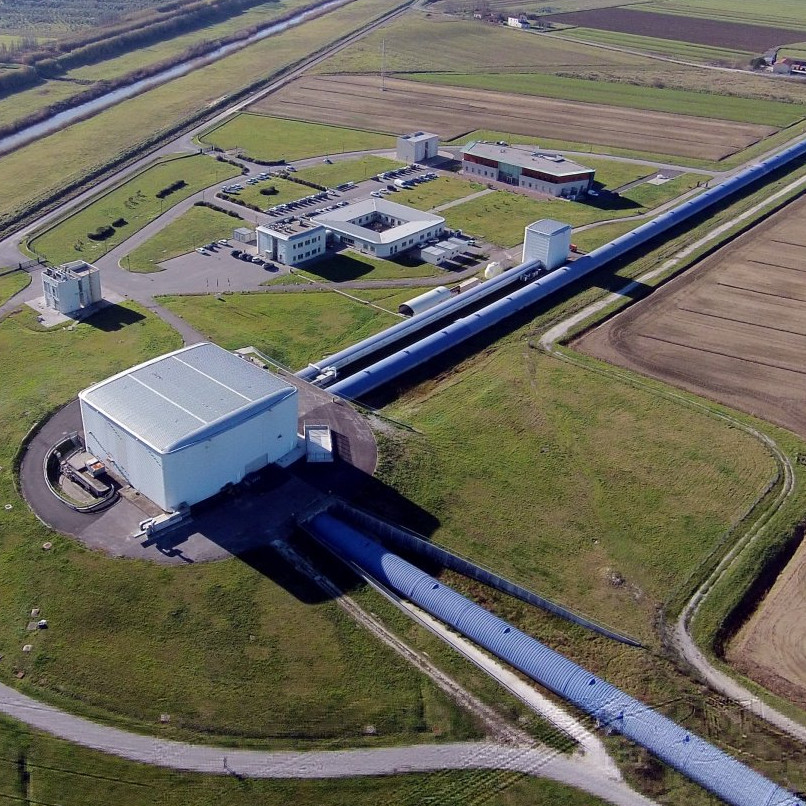
Virtual Access to LIGO and Virgo observational data archived at the Gravitational Wave Open Science Centre
Supporting research visits for scientists and engineers to foster new or strengthen existing collaborations
Acknowledge AHEAD2020 support: The research leading to these results has received funding from the European Union’s Horizon 2020 Programme under the AHEAD2020 project (grant agreement n. 871158)


